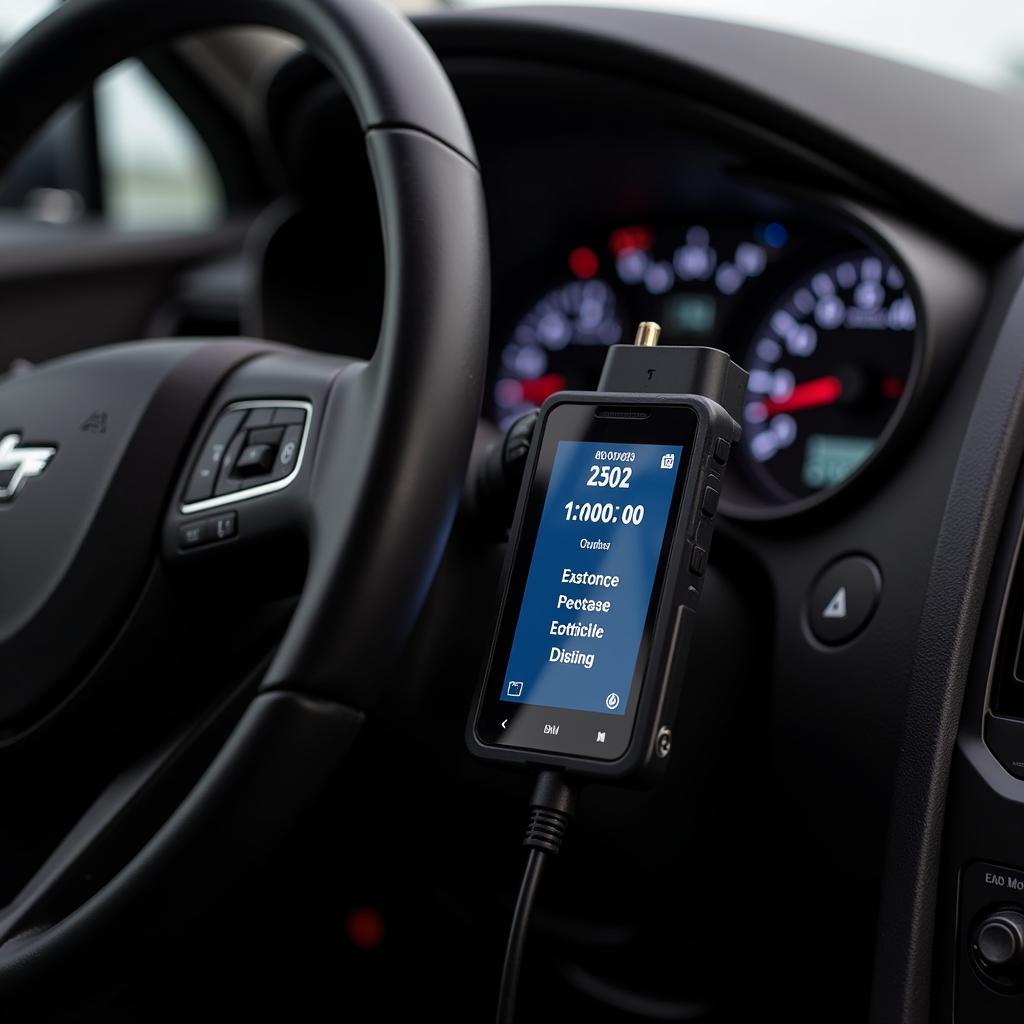Unmasking Car Clocking Services: The Truth Behind Mileage Manipulation
Car Clocking Services, also known as mileage correction or odometer rollback, involve tampering with a vehicle’s odometer to display a lower mileage than the actual distance traveled. This deceptive practice can have serious financial and safety implications for unsuspecting buyers. Understanding how these services operate, the motivations behind them, and how to protect yourself is crucial in today’s used car market.
The Mechanics of Mileage Manipulation: How Car Clocking Services Work
Car clocking used to be a relatively simple mechanical process, but modern vehicles with digital odometers present a different challenge. While older vehicles could be manipulated by physically rolling back the numbers, newer cars require sophisticated software and tools to alter the mileage stored in the vehicle’s computer system. Some unscrupulous services even replace the entire instrument cluster to hide the evidence. Regardless of the method, the result is the same: a misrepresentation of the vehicle’s history and true condition.
Why Do People Use Car Clocking Services?
The primary motivation for car clocking is financial gain. A lower mileage typically translates to a higher resale value. By reducing the mileage, sellers can deceive buyers into believing the car is in better condition than it actually is, allowing them to demand a higher price. Some sellers may also use clocking to hide excessive wear and tear, potentially masking mechanical problems that would otherwise be evident with higher mileage.
 Car Clocking Device Connected to OBD Port
Car Clocking Device Connected to OBD Port
The Dangers of Buying a Clocked Car
Purchasing a car with a rolled-back odometer can lead to a number of problems. First and foremost, you’re likely overpaying for the vehicle. You’re essentially paying a price based on a false representation of the car’s condition and usage. Secondly, a clocked car may have hidden mechanical issues that haven’t been addressed due to the manipulated mileage. This can result in unexpected and potentially costly repairs down the line. Lastly, a clocked car can be a safety hazard. Essential maintenance based on mileage, such as timing belt replacements or brake inspections, might be overlooked, increasing the risk of accidents.
How to Spot a Clocked Car: Protecting Yourself from Fraud
While car clocking can be sophisticated, there are several telltale signs to watch out for. Inconsistencies in the vehicle’s documentation, such as service records or MOT certificates, can be a red flag. Excessive wear and tear on the interior, such as worn pedals or steering wheel, that doesn’t match the displayed mileage is another indicator. A pre-purchase inspection by a qualified mechanic is always recommended, as they can often identify discrepancies and potential signs of tampering.
Is Car Clocking Illegal?
Yes, car clocking is illegal in most countries, including the United States and the United Kingdom. It’s considered fraud and can lead to significant penalties for those caught engaging in the practice. However, despite its illegality, car clocking remains a problem, highlighting the importance of vigilance when buying a used car.
Car Clocking vs. Odometer Adjustment: Is There a Difference?
While the terms are often used interchangeably, there’s a key distinction. “Odometer adjustment” can be legitimate in certain situations, such as repairing a faulty odometer or replacing a damaged instrument cluster. In these cases, the mileage should be accurately documented and reported to the relevant authorities. “Car clocking,” on the other hand, always refers to the illegal practice of rolling back mileage for fraudulent purposes.
Conclusion: Steering Clear of Car Clocking Services
Car clocking services pose a serious threat to used car buyers. By understanding the methods used, the motivations behind them, and the potential consequences, you can better protect yourself from this fraudulent practice. Always be vigilant, conduct thorough research, and never hesitate to seek professional advice when buying a used vehicle. A car with a suspiciously low mileage might seem like a great deal, but it could ultimately cost you significantly more in the long run.
FAQ
- How can I check a car’s mileage history? Check vehicle history reports from reputable providers.
- What should I do if I suspect a car has been clocked? Report your suspicions to the authorities and avoid purchasing the vehicle.
- Can I get my money back if I buy a clocked car? It depends on the specific circumstances and local laws, but legal action is possible.
- Are there any reliable ways to detect car clocking? A pre-purchase inspection by a trusted mechanic is highly recommended.
- What are the penalties for car clocking? Penalties vary depending on the jurisdiction but can include fines and imprisonment.
- Is it legal to adjust the odometer after a repair? Yes, but it must be documented and reported correctly.
- How can I protect myself from buying a clocked car? Thoroughly inspect the car, review its history, and get a professional inspection.
Need Assistance? Contact us via WhatsApp: +1(641)206-8880, Email: [email protected] or visit our office at 456 Oak Avenue, Miami, FL 33101, USA. Our 24/7 customer support team is always ready to assist you.

